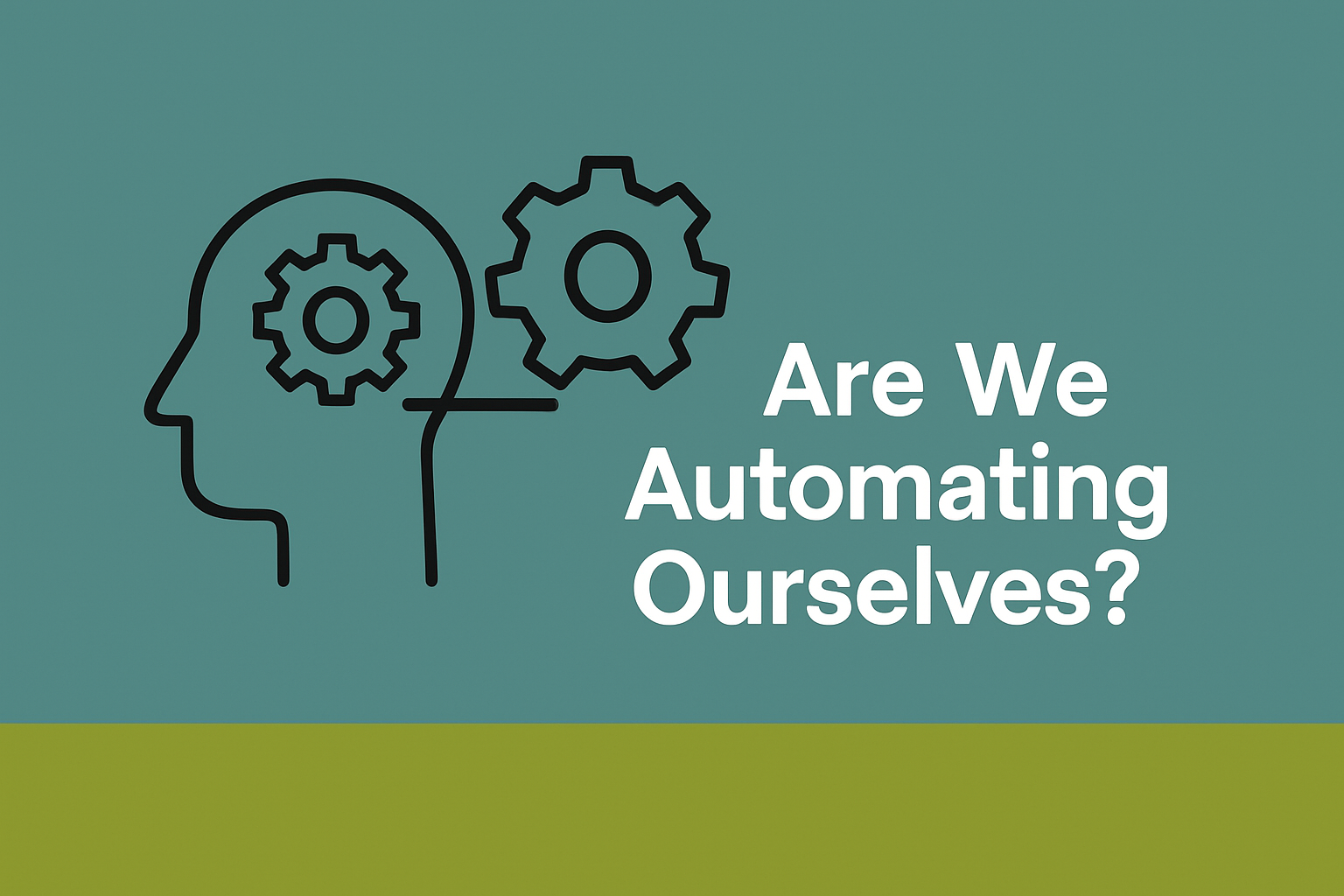Are We Automating Ourselves?

In the fast-moving world of digital transformation, efficiency is the name of the game. Every tool, every platform, every process is optimized to go faster, cost less, and scale better. And yes, this is progress. Technology gives us superpowers.
But there’s a growing problem, and many don’t speak about it directly:
We are asking people to act more and more like machines—fast, tireless, predictable—and in doing so, we make them easier to replace by machines.
We push teams to be “always on,” automate emotional labor, and reward speed over thought. In many orgs, there’s no time to think, just time to execute.
This is not sustainable and not strategic either.
Machines Do Tasks. Humans Create Meaning.
AI can write a report. Automation can manage a workflow. Tools can send alerts. But none of these systems can truly understand people, or care about outcomes. Machines can simulate intelligence, but they can’t hold responsibility. They don’t ask the big questions: Why are we doing this? Is this the right thing? Who is affected?
When we condition people to act more like software, always efficient, never emotional, we lose the human value that technology cannot copy.
And ironically, we make our own workforce easier to automate.
The Irreplaceable Advantage: Human-Centered Thinking
CIOs and digital leaders are in a unique position. We sit between technology and people. We see both the power of automation and the limits of it.
The most valuable people on your team are not the fastest, or the ones who never ask questions. They are the ones who:
- Think with judgment under pressure
- Communicate with empathy and clarity
- Imagine new solutions, not just better execution
- Connect dots between technology and human needs
- Build trust, culture, and resilience
No machine can replace that.
Leading with Tech and Humanity
The best strategy isn’t to resist technology; it’s to design systems where people and machines complement each other. Tech should remove friction, not identity. It should support our teams, not replace their thinking.
What does this look like in practice?
- Automate the boring, not the human. Use AI to remove repetitive work, not deep thinking.
- Redefine productivity. Don’t only measure speed or volume—measure learning, collaboration, and creative outcomes.
- Invest in “human skills.” Curiosity, storytelling, leadership, emotional intelligence, these are not “soft,” they are strategic.
- Create space for reflection. Innovation needs silence. Burnout kills it.
What Future Are We Building?
Every piece of tech we bring into our companies sends a signal. Are we trying to replace humans, or elevate them?
Being human is not a bug, it’s the competitive advantage in the age of AI. Machines can follow the path. Humans can ask if it’s the right one.
In the end, the future doesn’t belong to the most efficient. It belongs to those who stay human while working with machines, not like them.

